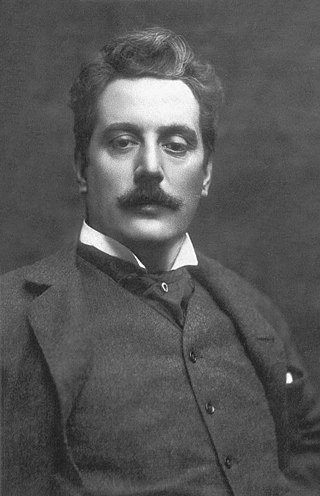
Giacomo Puccini was an Italian composer known primarily for his operas. Regarded as the greatest and most successful proponent of Italian opera after Verdi, he was descended from a long line of composers, stemming from the late-Baroque era. Though his early work was firmly rooted in traditional late-19th-century Romantic Italian opera, he later developed his work in the realistic verismo style, of which he became one of the leading exponents.
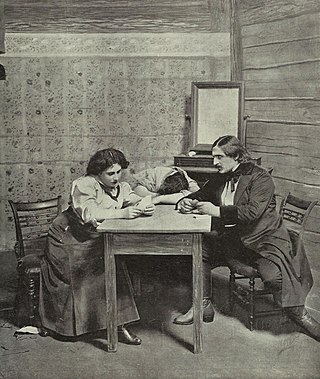
La fanciulla del West is an opera in three acts by Giacomo Puccini to an Italian libretto by Guelfo Civinini and Carlo Zangarini, based on the 1905 play The Girl of the Golden West by the American author David Belasco. Fanciulla followed Madama Butterfly, which was also based on a Belasco play. The opera has fewer of the show-stopping highlights that characterize Puccini's other works, but is admired for its impressive orchestration and for a score that is more melodically integrated than is typical of his previous work. Fanciulla displays influences from composers Claude Debussy and Richard Strauss, without being in any way imitative. Similarities between the libretto and the work of Richard Wagner have also been found though some attribute this more to the original plot of the play, and have asserted that the opera remains quintessentially Italian.

The province of Lucca is a province in the Tuscany region of Italy. Its capital is the city of Lucca.

Viareggio is a city and comune in northern Tuscany, Italy, on the coast of the Tyrrhenian Sea. With a population of over 62,000, it is the second largest city within the province of Lucca, after Lucca.

The Teatro dell'Opera di Roma is an opera house in Rome, Italy. Originally opened in November 1880 as the 2,212 seat Costanzi Theatre, it has undergone several changes of name as well modifications and improvements. The present house seats 1,560.

Torre del Lago is a town of almost 11,000 inhabitants, a frazione of the comune of Viareggio, in the province of Lucca, Tuscany, Italy, between the Lake of Massaciuccoli and the Tyrrhenian Sea.
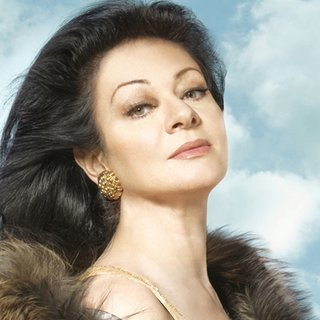
Daniela Dessì was an Italian operatic soprano.

The Festival Puccini is an annual summer opera festival held in July and August to present the operas of the famous Italian composer Giacomo Puccini.
Domenico Vincenzo Maria Puccini was an Italian composer, a contemporary of Muzio Clementi, Johann Nepomuk Hummel, Franz Schubert and Ludwig van Beethoven.
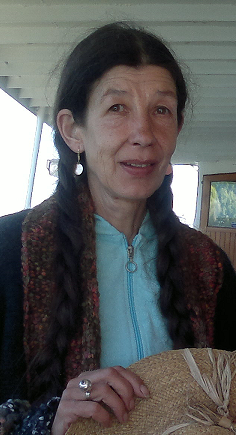
Viive Sterpu was an Estonian artist married to fellow artist Eugen Sterpu. She lived and worked in Tallinn, Estonia.
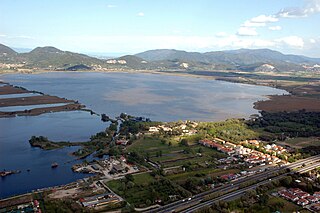
Lake Massaciuccoli is a lake in the Province of Lucca, Tuscany, Italy. Its surface area is 6.9 km². It is located mainly in the municipality of Massarosa and partly in Torre del Lago, a civil parish of Viareggio.

Jacopo (Giacomo) Puccini was an 18th-century Italian composer who lived and worked primarily in Lucca, Tuscany. He was the first of five generations of composers, the most famous of whom was his great-great-grandson, the opera composer Giacomo Puccini.

The Lucca Film Festival, or LFF, is an annual event that has been held in Lucca since 2005. The festival offers screenings, exhibitions, conferences, and performances, ranging from mainstream to art-house cinema.
Guglielmo Amedeo Lori (1869–1913) was an Italian painter of landscapes in a Divisionist style.
Ferrucio Pagni was a French-Italian painter active mainly painting sacred subjects in a late-Mannerist style in Siena, Tuscany, Italy.

Nicola Fanucchi, is an Italian stage actor and director.
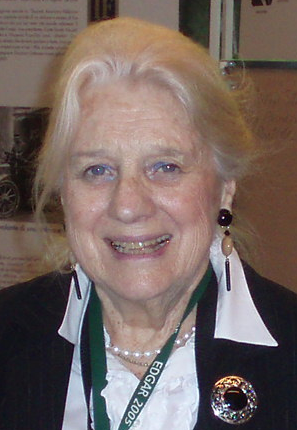
Simonetta Puccini, born Simonetta Giurumello was the last surviving acknowledged descendant of the composer Giacomo Puccini. She dedicated her life to her grandfather's memory, and owned and restored the composer's home, Villa Museo Puccini.
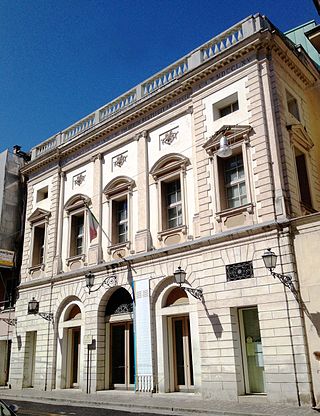
The Teatro Mario Del Monaco is an opera house and theatre in Treviso, Italy. It was previously known as the Teatro Onigo from 1692 to 1846, the Teatro Sociale from 1847 to 1930, and the Teatro Comunale from 1931 to 2011. In 2011, it was renamed in honour of the Italian tenor Mario Del Monaco who lived in Treviso from 1975 until his death in 1982. It is located in the historic centre of the city on the Corso del Popolo and since 2019 has been run by the Teatro Stabile del Veneto which also runs the Teatro Goldoni in Venice and the Teatro Verdi in Padua.
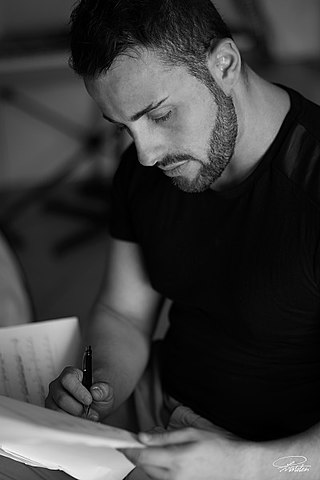
Salvatore Frega is an Italian composer of contemporary cultured music and experimental music, Director of the Versilia Music Academy and of TG Music and Professor at the Conservatory of Cosenza.

Rame Lahaj is a Kosovar operatic tenor. Among his notable roles are Alfredo, Duke of Mantua (Rigoletto), and Rodolfo.


















